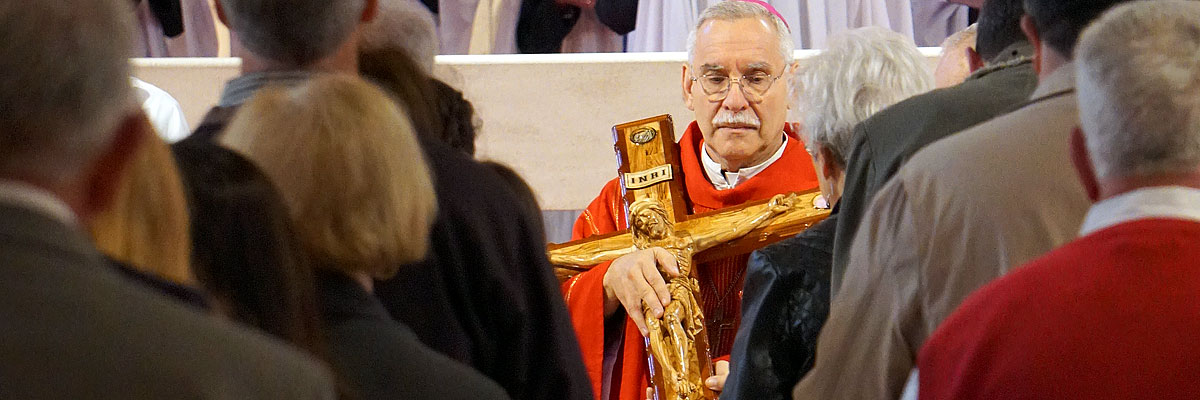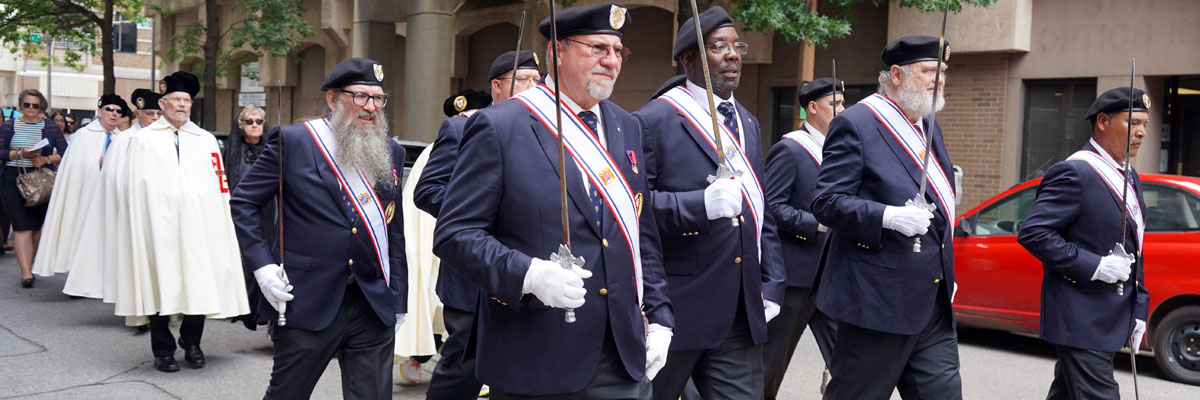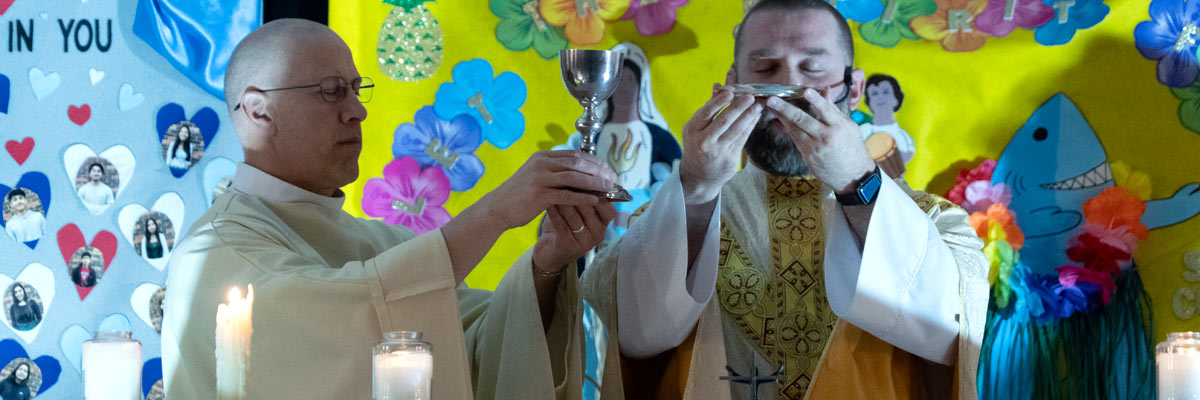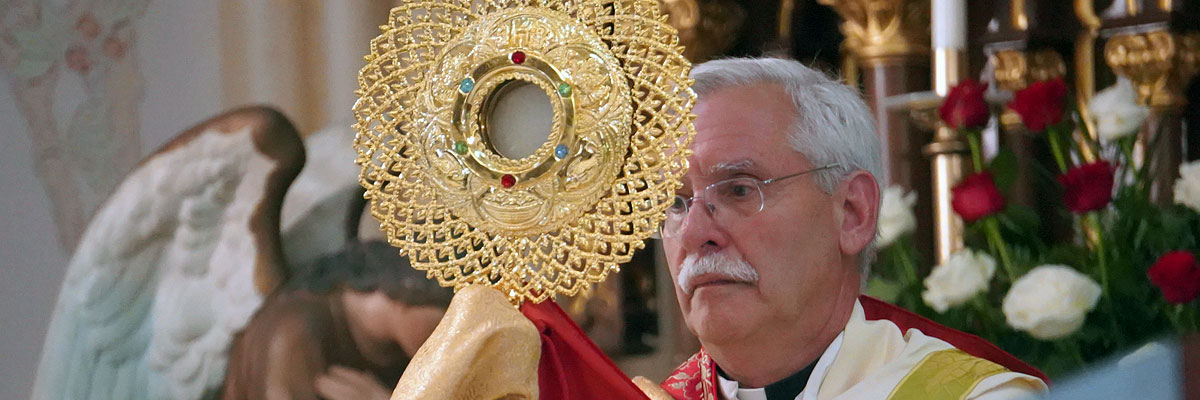Official Website of the
Catholic Diocese of Little Rock
Holy Thursday Mass of the Lord's Supper 2014
Published: April 17, 2014
Bishop Anthony B. Taylor preached the following homily at the Cathedral of St. Andrew in Little Rock on Thursday, April 17, 2014.

Bishop Taylor
Holy Thursday is many things. At the Last Supper Jesus instituted the Eucharist: "This is my body ... this is my blood" and he instituted the priesthood: "Do this in memory of me." Jesus also gave us a model of humble service to imitate, washing the feet of his disciples: "As I have done for you, you should also do."
But during these very days when our Jewish brothers and sisters are celebrating Passover, we should not forget that Jesus did all of this in the context of a Passover meal, which is crucial for understanding the full meaning of what he accomplishes on Holy Thursday, Good Friday and Easter Sunday. The Last Supper was the great "transition" Passover between the Old Covenant (which retains its validity for Jews even today — God never withdraws his love!) and the New Covenant in Jesus' blood, which he gives his disciples to drink in communion during this meal, and which we receive sacramentally in every Mass: a New Covenant which fulfills the Old, which he will then seal with his blood poured out in sacrifice tomorrow.
In romance languages like Spanish, the words for Passover and Easter are the same — Pascua — so to distinguish the two you have to add the word "Jewish" or "Christian." And yet, beyond the institution of the Eucharist, there are very significant ways in which the Last Supper — in fulfilling the Old — both builds on the Passover as celebrated in Jesus' time and differs from it:
He did so with a love so complete and so inclusive that it forced Satan to loosen his grip on us whom he had enslaved to sin.
— The old Passover was eaten with "loins girt" ready to flee Egypt, but Jesus "took off his outer garment" in order to stay put and serve.
— Participants in the old Passover had "sandals on their feet," ready for a journey into the dusty desert, but Jesus had them take off their sandals so he could wash that dust off their feet.
— The first Jewish Passover preceded the death of all of the first-born sons of Egypt, which finally forced Pharaoh to free the Hebrews from slavery and oppression, but the first Christian Passover — which we commemorate and celebrate today — precedes the death of the Son of God, the first born of all creation and involved not the killing of enemies, but rather the voluntary self-sacrificing death of our truest friend so that our lives might be spared and our eternal salvation secured. And Jesus did this not only our of love for his friends, but — astoundingly — also out of love for those who had made themselves enemies of God. He did so with a love so complete and so inclusive that it forced Satan to loosen his grip on us whom he had enslaved to sin. Where there is no hate or any other vice (as in the case of Jesus) Satan has no power!
— The Passover lamb was without physical blemish, but Jesus was perfect in every respect, without sin of any sort. The lamb's blood applied to their doorposts saved the Hebrews from death that night, but Satan was not thereby defeated. The door to life closed through Adam's sin remained shut, and so eventually they all died — indeed none of them even lived to reach the Promised Land 40 years later. By contrast, Jesus' blood poured out on the doorpost of the cross opened that long-closed door, turning the cross into the door to eternal life. Now Satan only has whatever power that we give him through our own sin, 1.) for which Jesus atones on Good Friday, 2.) from which slavery he redeems us by paying the ultimate price, and 3.) in victory over which he gives us a share on Easter Sunday.
In all these ways, Jesus fulfills the Old Covenant and establishes the New during these most sacred three days of human history and of the liturgical year. Jesus invites us to share in the saving events of his Last Supper today, and his passion and death tomorrow, in order to open wide the door to new life in the Kingdom of God on Easter Sunday!








